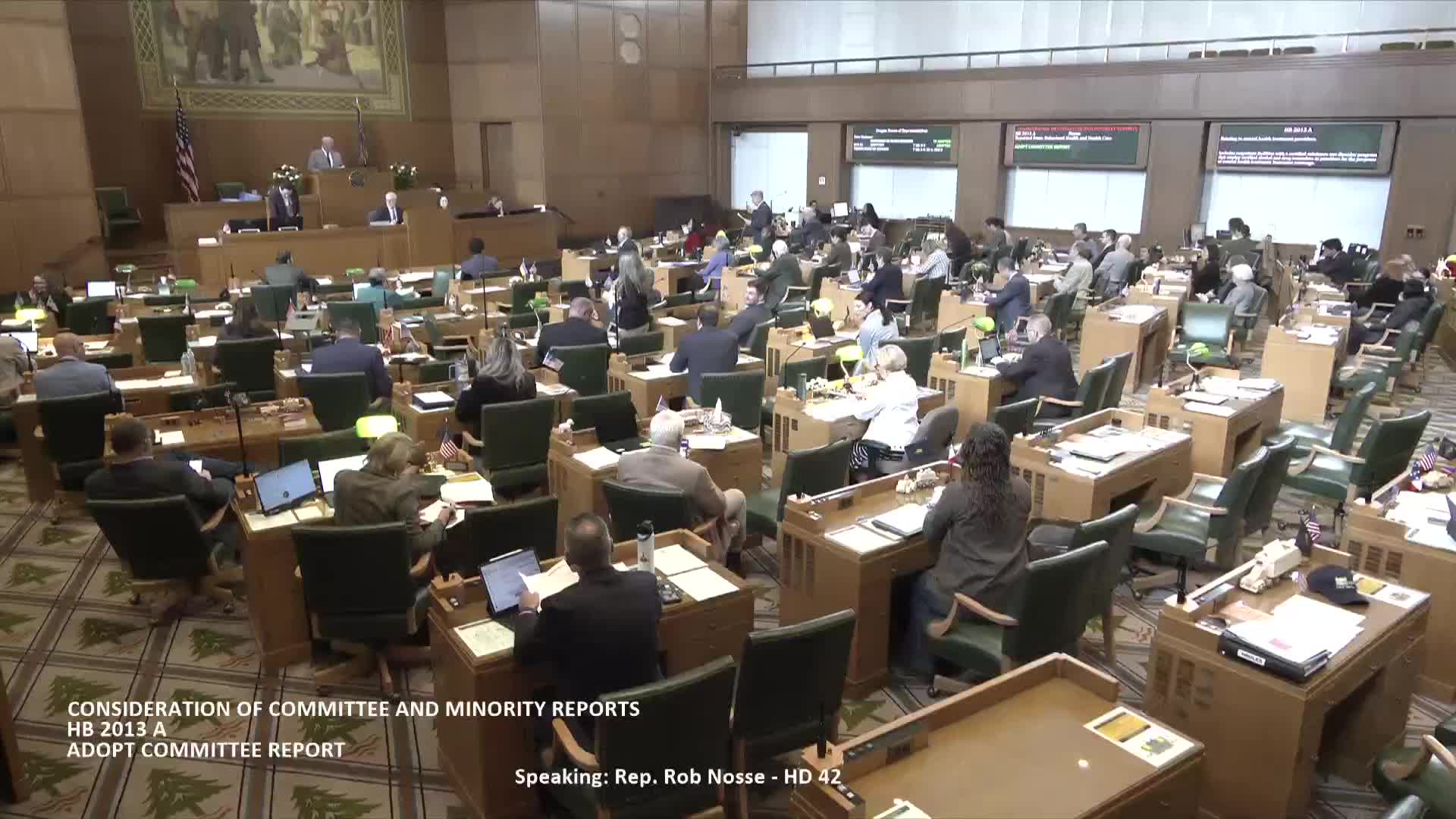Oregon House expands who can bill insurers for substance‑use services; social‑work compact debate fails to win majority
Get AI-powered insights, summaries, and transcripts
Subscribe
Summary
The House passed House Bill 2013 A to expand the definition of providers who may be recognized by private insurers to include certain outpatient facilities that employ certified alcohol and drug counselors (CADCs). Lawmakers debated a minority amendment to join the Social Work Licensure Compact but the amendment failed to gain a majority.
The Oregon House passed House Bill 20 13 A Tuesday, clearing language to allow certain outpatient facilities that employ certified alcohol and drug counselors to be recognized as providers for billing by private insurers.
The measure changes statute language to add outpatient facilities that operate a certified substance use disorder program and employ CADCs, enabling those facilities to seek payment from private insurers in the same manner Medicaid currently allows. Supporters said the change is meant to improve access to addiction treatment, particularly in rural and underserved areas.
Representative Noss, speaking in support on final reading, said the bill “does not mandate any amount of reimbursement rate” and “does not even require insurance plans to ... credential with facilities that employ CADCs,” framing the change as one of access and eligibility rather than rate setting. The committee adopted a dash‑1 amendment, described on the record as narrowing the definition to facilities with certified substance use disorder programs that employ CADCs.
Members also debated a separate minority report offered as a substitute that would have adopted the Social Work Licensure Compact and related multistate licensing provisions to ease cross‑state practice for social workers. Representative Deal and other proponents argued the compact reduces licensing delays, supports telehealth and rural access and preserves state disciplinary authority; proponents noted other professions have used compacts and that Washington state expects licensing revenue to cover costs.
Opponents raised constitutional and implementation concerns, including whether a compact delegates rulemaking authority and the potential costs and impacts on Oregon providers. Representative Deal moved the minority report but it did not receive the required majority; the House then advanced HB 20 13 A to immediate third reading and passed the bill on final consideration.
The bill as passed is limited to statutory eligibility for billing; it contains no mandate on private insurers’ reimbursement rates and does not itself change Medicaid billing rules.
